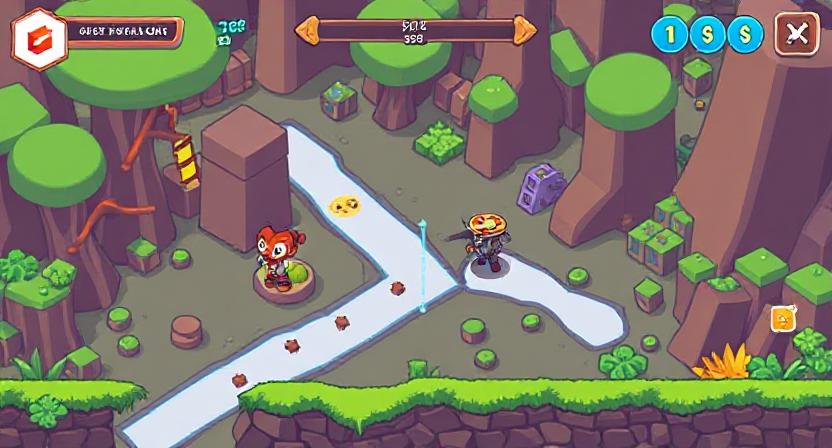Are you planning to purchase an HTML5 game license for your website, app, or platform? That’s a smart move—HTML5 games are lightweight, cross-platform, and don’t require downloads, making them perfect for mobile and web users. But before you invest in one, it’s crucial to ask the right questions to the game developer or studio.
Whether you’re a game publisher, an entrepreneur starting a gaming portal, or a marketing agency wanting branded mini-games, this guide will help you make the right decision.
Why Choosing the Right HTML5 Game License Matters
Not all HTML5 game licenses are the same. Some give you full rights to customize and monetize the game, while others come with strict restrictions. Choosing the right license—and developer—can save you time, money, and legal trouble.
Key Questions to Ask Before Buying an HTML5 Game License
1. What Type of License Are You Offering?
Ask if it’s:
- Exclusive License – You’re the only one who can use the game.
- Non-Exclusive License – The game can be sold to multiple clients.
- Custom License – A special agreement based on your needs.
Why it matters: Exclusive licenses usually cost more but offer unique branding opportunities. Non-exclusive licenses are cheaper but more widely used.
2. Can I Customize the Game?
Check if the license includes access to:
- Source code (usually in JavaScript or TypeScript)
- Image and sound assets
- Game settings (like difficulty, speed, scoring)
Why it matters: If you want to add your logo, change characters, or tweak gameplay, source code access is essential.
3. Is the Game Mobile and Cross-Browser Compatible?
Make sure the game works on:
- Chrome, Safari, Firefox, Edge
- Android and iOS devices
- Desktop and tablet browsers
Why it matters: HTML5’s biggest strength is compatibility. A game that doesn’t perform well on some devices will frustrate your users.
4. What Are the Game’s Technical Requirements?
Ask about:
- File size (for loading speed)
- Hosting needs (CDN, static server, etc.)
- Any external libraries used
Why it matters: Games that are too large or use unsupported libraries may cause delays or errors.
5. Can I Monetize the Game?
Check if the license allows:
- In-game ads (e.g., AdSense, AdMob, or other networks)
- Subscription access
- Affiliate links or branded content
Why it matters: Some licenses restrict commercial usage—read the fine print and confirm with the developer.
6. Will You Provide Technical Support or Updates?
Ask:
- Do you offer bug fixes?
- Will I get game updates?
- How long is support available?
Why it matters: Bugs or browser updates can break your game. Ongoing support ensures you’re not stuck when issues arise.
7. Do You Have a Portfolio or Demos?
Always ask for:
- Live demo links
- Previous client references
- Similar games you can try
Why it matters: A demo helps you assess gameplay quality, design, and responsiveness before buying.
8. Is There an Option for Branding or White Labeling?
If you want to use the game for:
- Marketing campaigns
- Educational platforms
- Brand engagement
Then ask:
- Can I add my brand colors and logo?
- Can gameplay be tailored for my campaign?
Why it matters: Branded games build strong engagement and promote your business in a fun way.
9. Is the Game GDPR and COPPA Compliant?
If your audience includes users from the EU or children under 13, this is important. Ask if:
- The game collects user data
- Cookies or tracking tools are used
- There’s a privacy policy
Why it matters: You could face legal issues if a game doesn’t meet international data protection standards.
10. What’s the Total Cost and Are There Any Hidden Fees?
Understand:
- One-time fee vs. recurring cost
- Additional costs for customization, branding, or updates
- Payment terms
Why it matters: Some developers charge low upfront but extra for every small change. Be clear from the start.
Bonus Tip: Ask for a Trial or Demo Period
Before finalizing the purchase, request a short trial or access to a live demo. This helps you:
- Test gameplay
- Check load speed
- Review device compatibility
Final Thoughts
Buying an HTML5 game license is a great way to enhance your digital presence, but only if done right. By asking these questions, you’ll ensure the game meets your business needs, offers value, and avoids unnecessary surprises.
Pro Tip: Always sign a written agreement that includes license terms, allowed usage, and support clauses.
